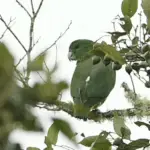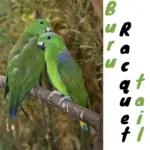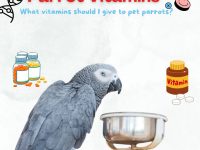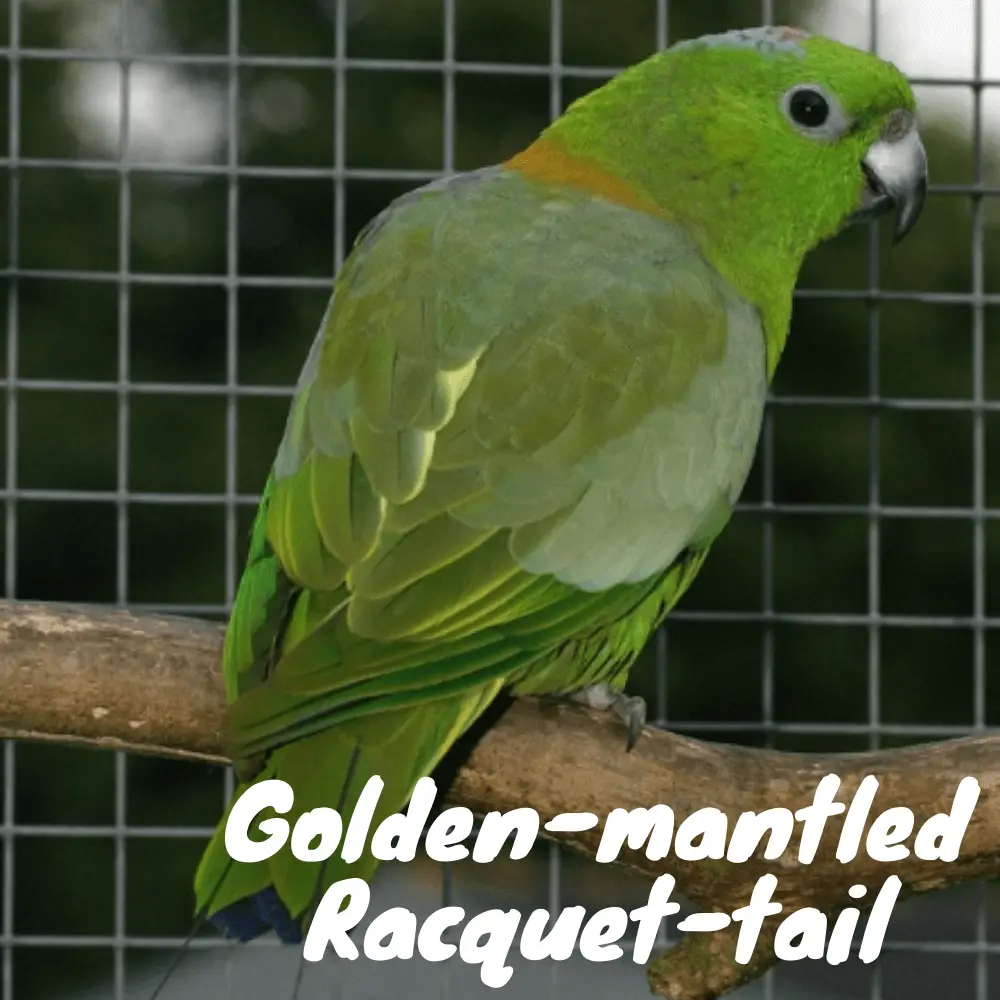
Golden-mantled Racquet-tail 28 cm. Bill pale greyish; green on the head with a red spot on hind crown bordered behind by larger lilac patch; dull orange lateral stripe across mantle; rest of mantle, back, and wing-coverts dull grey; central tail feathers green above, with blackish spatulas, lateral feathers green with blue edging and black tips; yellowish-green on undersides.
Female Golden-mantled Racquet-tail green. Immature-like a female with no spatulas. Race talautensis darker with less grey upperparts; sinerubris also less grey, smaller, without a red spot on the crown.
is a species of parrot in the family Psittaculidae, Prioniturus platurus Scientific name definitions
- LC Least Concern
- Names (15)
- Subspecies (3)
Systematics History
Editor’s Note: This article requires further editing work to merge existing content into the appropriate Subspecies sections. Please bear with us while this update takes place.
May form a species pair with Golden-mantled Racquet-tail. Three subspecies were recognized.
Subspecies
SUBSPECIES
Prioniturus platurus talautensis Scientific name definitions
Distribution
Talaud Is (Karakelong, Salebabu).
SUBSPECIES
Prioniturus platurus platurus Scientific name definitions
Distribution
Sulawesi and associated islands (Siau, Lembeh, Dodepo, Togian Is, Banggai Is, Muna, Butung).
SUBSPECIES
Prioniturus platurus sinerubris Scientific name definitions
Distribution
Sula Is (Taliabu, Mangole).
Distribution
Editor’s Note: Additional distribution information for this taxon can be found in the ‘Subspecies’ article above. In the future, we will develop a range-wide distribution article.
Habitat
Lowland rain forest up to elfin moss forest at 3000 m; perhaps most numerous at 1800–2000 m. Also at the forest edge and even at mango trees in villages.
Movement
No regular movements are recorded, but parrots move daily over large distances in search of food.
Diet and Foraging
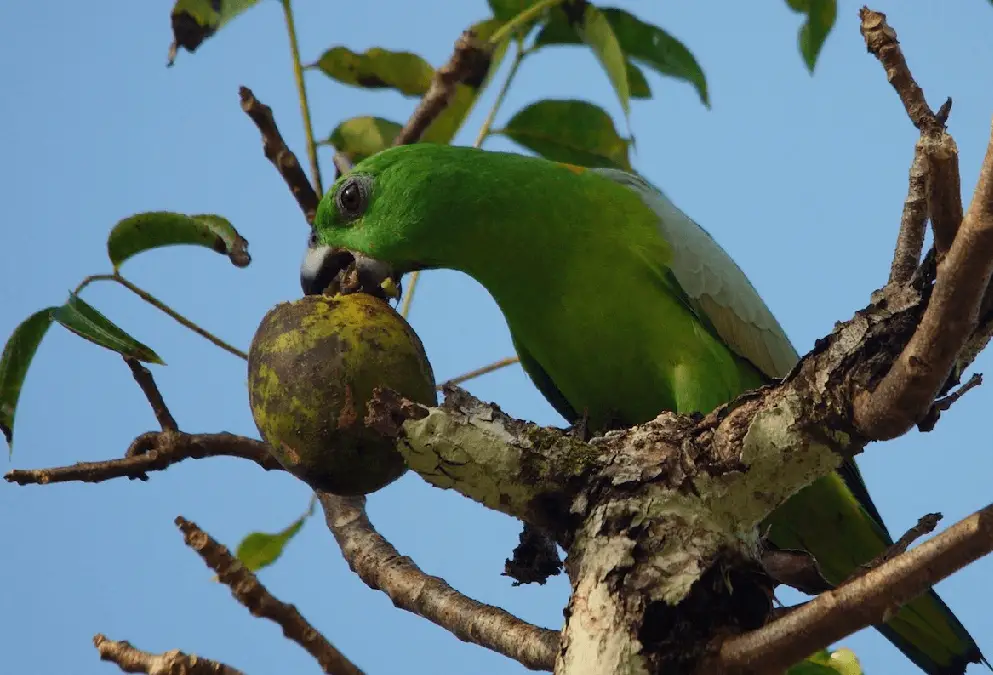
Golden-mantled Racquet-tail eat Small fruits and seeds are taken in the interior of forest from substage to lower canopy; fond of cultivated mangoes and reported to visit ripening corn at night.
Sounds and Vocal Behavior
The commonest vocalization of Golden-mantled Racquet-tail is a rolling screechy disyllabic “curleek”. When perched, also several rather nasal screechy or squeaky notes.
Breeding
Oct. Golden-mantled Racquet-tail Nest in a hole in limb or tree.
Conservation Status
Conservation status on BirdlifeLC Least Concern
Not globally threatened. CITES II. A BirdLife “restricted-range” species. Common, occurring in small parties throughout Sulawesi. May have declined mid-century on Muna and Buton islands owing to trapping.

